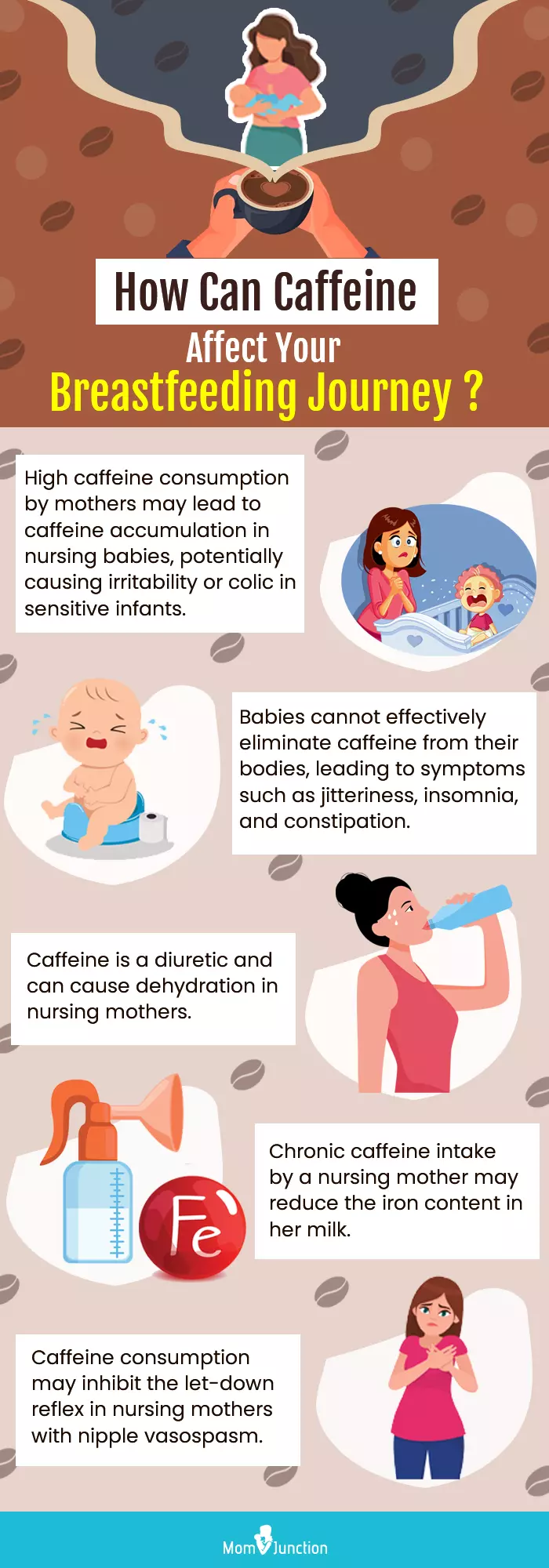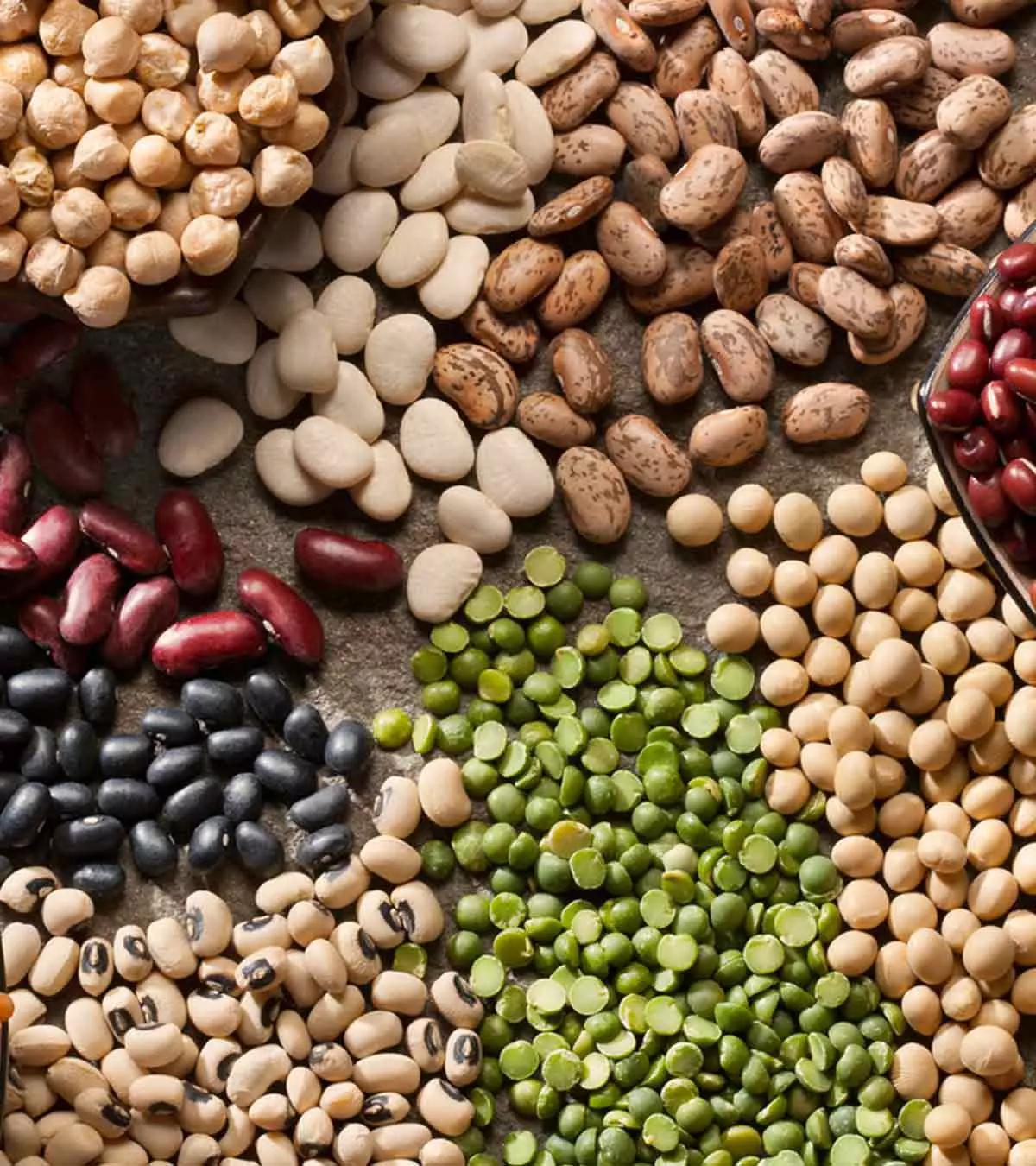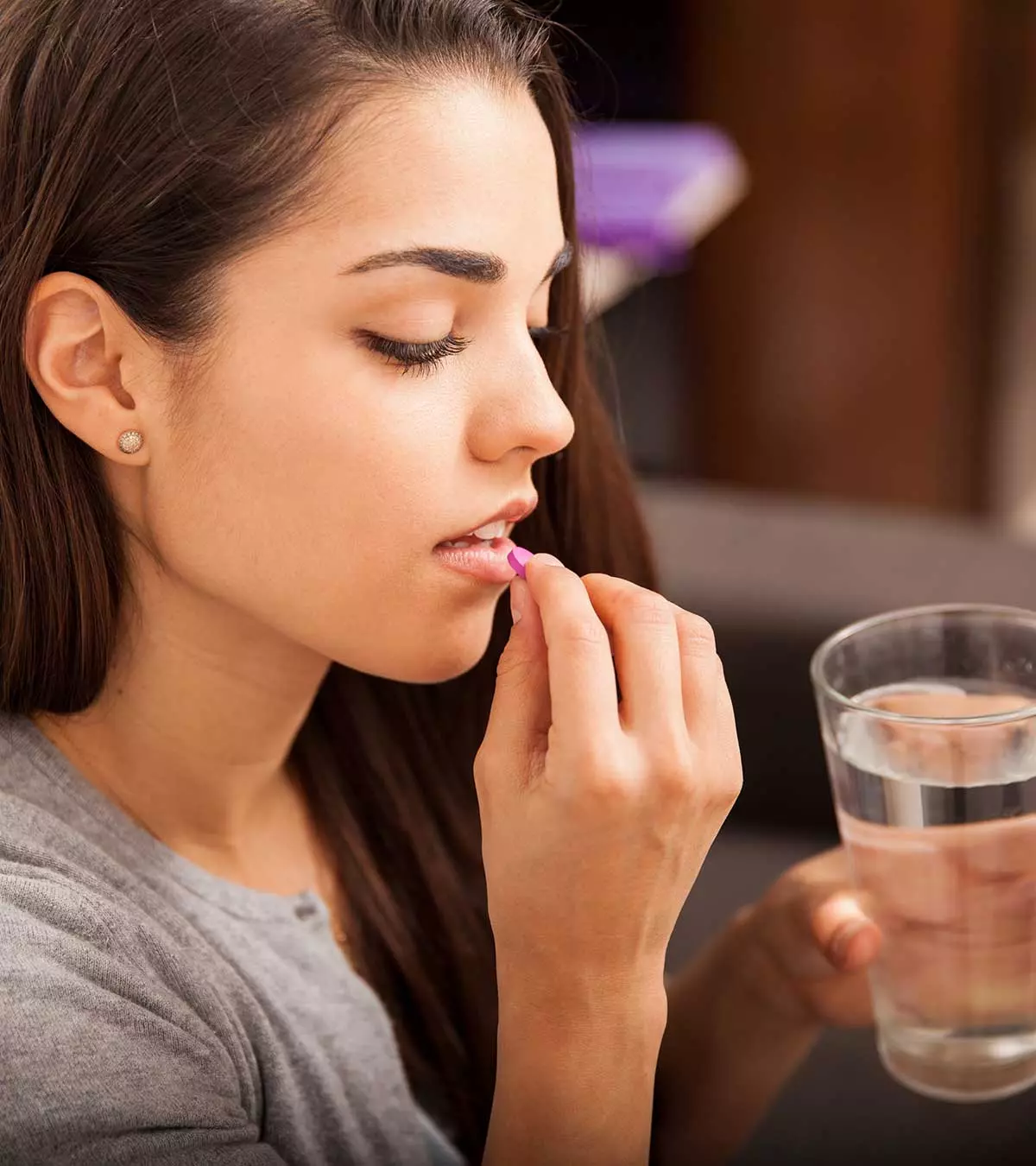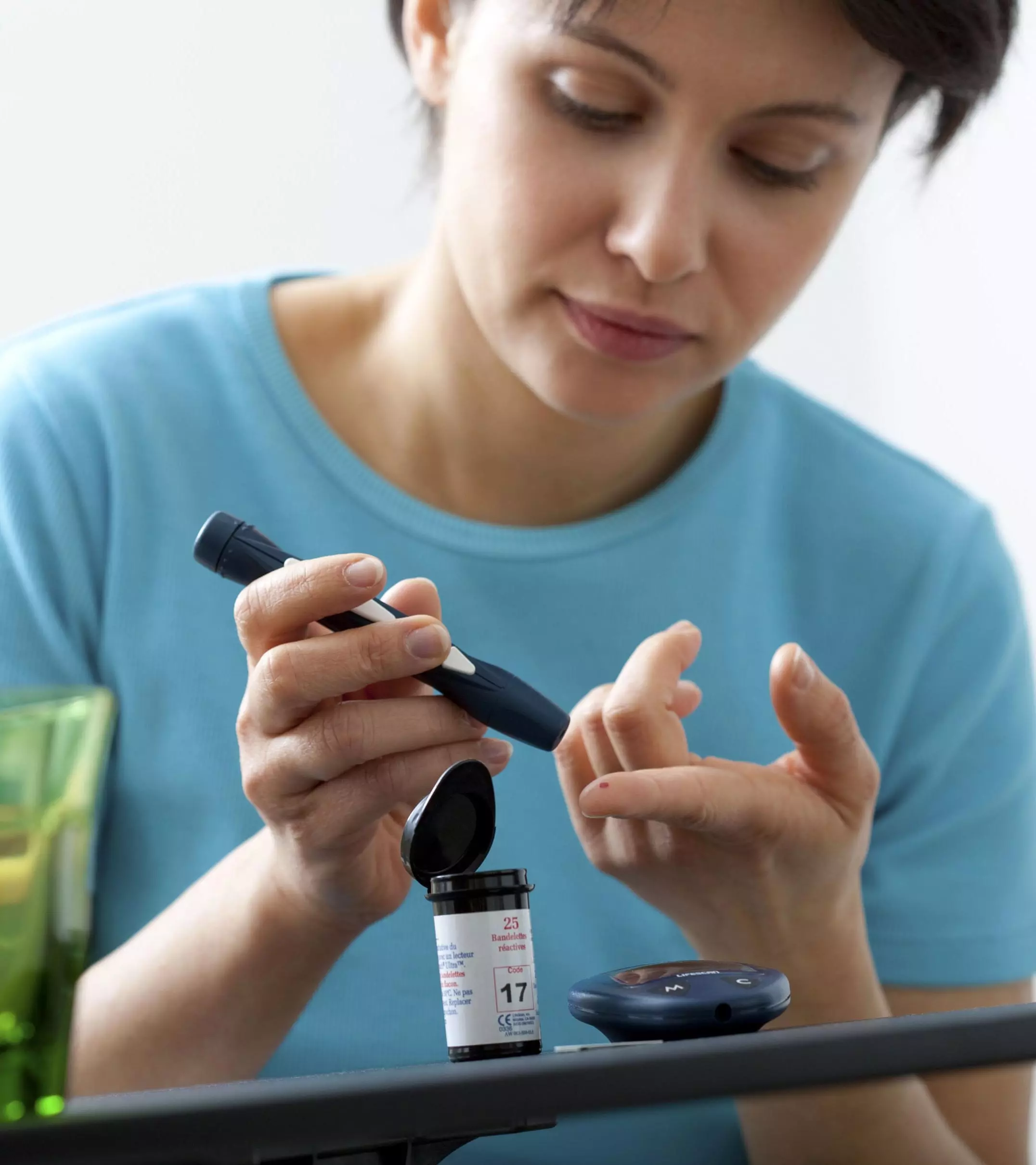
Image: ShutterStock
Decaf coffee is a popular alternative to regular coffee that contains less caffeine but has the same aroma and flavor
. As experts advise nursing mothers to limit their caffeine intake, you would want to know if drinking decaf coffee while breastfeeding is a safe option. Knowing this is essential as regardless of the content in your coffee, it still has some caffeine that may affect sensitive babies (1).
Read on as we tell you more about the safety of decaf coffee during lactation, its nutritional value, and its effects on you and your baby. But before we understand how caffeine affects breastfeeding moms and their babies, let’s first understand the difference between decaf coffee and regular coffee.
Key Pointers
- Decaf coffee contains same antioxidants as regular coffee, but with lower caffeine content, making it a good choice for those who prefer less caffeine.
- Moderate caffeine intake of up to 300mg/day does not affect breastfeeding.
- High caffeine intake may lead to irritability, constipation, and affect milk production.
- Some babies may be sensitive to lower levels of caffeine.
- Nursing mothers can consume 1-2 cups of regular or decaf coffee per day without harming their baby.
Caffeine Levels In Regular Coffee And Decaf Coffee

The average caffeine content in an 8oz brewed cup of coffee is 95mg, while average caffeine content in decaf coffee is about 3mg. It means, decaf coffee is not caffeine-free but contains a lesser amount of caffeine than coffee.
The reason is, decaf coffee is produced after processing the coffee beans to remove at least 97% caffeine. Caffeine from the beans is removed with the help of solvents like water, carbon dioxide or organic solvents. The beans are then roasted and ground.
Also, the level of caffeine depends on the type, cup size, and the preparation method.
According to a study, a cup of decaf (180ml or 6oz) has 0 to 7mg caffeine, while a cup of regular coffee has 70 to 140mg (2).
 Quick fact
Quick factThis Table Shows The Caffeine Levels In Various Coffee Types
The following is provided to assist consumers in understanding the contribution of various foods to caffeine intakes.
Product | Serving Size (unless otherwise stated) | Milligrams of Caffeine (approximate values) | |
|---|---|---|---|
oz | ml | ||
| Coffee | |||
| Brewed | 8 | 237(1cup) | 135 |
| Roasted and ground, percolated | 8 | 237 | 118 |
| Roasted and ground, filter drip | 8 | 237 | 179 |
| Roasted and ground, decaffeinated | 8 | 237 | 3 |
| Instant | 8 | 237 | 76 – 106 |
| Instant decaffeinated | 8 | 237 | 5 |
Source: (3)
Nutritional Value Of Decaf Coffee
The nutritional value of decaf is the same as that of coffee.
The nutrition content of decaf is the same as that of coffee.
Just like regular coffee, decaf contains antioxidantsiSubstances that may prevent or slow down some types of the cell damage caused due to harmful molecules called free radicals. , but some percentage (15%) may be lost during the decaffeination process. The primary antioxidants in decaffeinated coffee are hydrocinnamic acids and polyphenolsiNaturally occurring antioxidant compounds found in food items such as fruits, vegetables, coffee, tea, and wine. . Other minor elements in decaf include 4.8% of potassium, 2.4% of the recommended daily intake of magnesium, 2.5% of niacin, or vitamin B3.
When the nutritional values are almost the same, then why should you shift to decaf coffee, at all? You might want to enjoy your regular cup for an energy boost, right?
Not right, because the higher content of caffeine (that is present in the regular coffee) can have some adverse effects on you and your baby.
Effects Of Caffeine On Breastfeeding
According to the American Academy of Pediatrics (AAP), moderate caffeine consumption during breastfeeding, which is two to three cups or 300mg a day, should have no effect on a nursing infant’s health (4).
- Caffeine may get accumulated in nursing babies if their mothers consume it at high levels, i.e., 750mg or more a day. But some babies who are highly sensitive to caffeine may show crankiness or turn coliciPersistent crying in babies without any apparent reason. even at lower levels.
- Babies cannot eliminate caffeine from the body, resulting in irritability, jitteriness, insomnia, and constipation.
Theresa, a nursing mother, documents how switching from regular coffee to decaf helped her baby boy, James, sleep better. She notes, “I gave up regular coffee, and it’s been ten days since I quit the caffeine cold turkey. I did it to see if it would help even out sweet baby James’ wonky sleep issues, and it seems to have worked. Even though I was always under the impression that decaf was vile, I have been consuming it for ten days, and James is sleeping better (ⅰ).”

- Caffeine is diureticiA substance that enables the kidneys to produce more urine and get rid of the excess fluid from the body. in nature and causes dehydration when breastfeeding.
- Chronic caffeine ingestion by the nursing mother could lessen the iron content in her milk.
- Caffeine consumption may affect the milk supply and let-down reflex (the milk ejection from the breasts) of a nursing mother with nipple vasospasm. This condition causes the constriction of blood vessels in the nipples, reducing the blood flow and leading to pain and temporary whitening of the nipples.
Now you know why limiting caffeine consumption is important for maternal health. They may ask you, “Why take a risk, you might as well avoid coffee completely.” We can assure you that’s not required.
 Quick fact
Quick factNursing Moms Can Have Caffeine
The American Academy of Pediatrics has categorized caffeine to be usually compatible with lactation. As a nursing mother, you don’t need to avoid it completely. Drinking 1-2 cups of coffee a day or decaf coffee during breastfeeding is perfectly acceptable.
Rather it is a lactose-free alternative to regular coffee for lactose-intolerant mothers who love coffee.

Mothers also need to remember that caffeine is found in many other foods and beverages like soda, chocolate, tea, and more. If decaf coffee is consumed along with caffeine- containing foods, then caffeine levels in breast milk could rise.
Frequently Asked Questions
1. How long after consuming coffee can I breastfeed?
Caffeine is readily absorbed into the bloodstream and reaches peak levels about 15 minutes to two hours after ingestion (5). Therefore, it is advisable to wait for at least two hours after consuming caffeine before breastfeeding.
2. Does caffeine while breastfeeding make babies gassy?
Caffeine is a stimulant that affects the central nervous system. Some studies suggest that excess caffeine intake by nursing mothers may be associated with fussiness and irritability in their breastfed infants. However, no conclusive studies show the association of maternal caffeine intake with gassiness in breastfed babies (6).
3. What is a good time to drink coffee when breastfeeding?
Nursing mothers should consume coffee just before breastfeeding to reduce the baby’s caffeine exposure risk. However, if there’s a gap of two or more hours between feeds, you can have coffee right after you have finished nursing the baby.
Decaf coffee is an aromatic and flavorful alternative to regular coffee with less caffeine. It is not known to have any adverse effects on nursing moms or their infants when consumed in moderation. Therefore, drinking decaf coffee while breastfeeding in moderation is safe for you and your baby. However, its excess intake by lactating mothers can have adverse effects on babies, such as diarrhea, irritability, insomnia, and constipation. Hence, you should limit or reduce caffeine intake significantly because babies cannot eliminate caffeine from their bodies.
Infographic: Effects Of Caffeine On Breastfeeding
Caffeine can reach your baby through breast milk, and in some cases, it could cause irritability and difficulty sleeping in infants. Look at the following infographic to learn more about the effects of caffeine on breastfeeding. If you are unsure about the safe quantity to consume while nursing, talk to your doctor for guidance. Illustration: Momjunction Design Team
Illustration: Can You Drink Decaf Coffee While Breastfeeding?

Image: Stable Diffusion/MomJunction Design Team
Nurture your understanding of the impact of caffeine on your baby’s health as a breastfeeding mother, delving into the intricate biology of breast milk and the transfer of caffeine to your little one.
Personal Experience: Source
MomJunction articles include first-hand experiences to provide you with better insights through real-life narratives. Here are the sources of personal accounts referenced in this article.
ⅰ. An illustrated story of life, love, and my long lost caffeine.https://ordinarylovely.blogspot.com/2014/06/an-illustrated-story-of-life-love-and.html
References
- Decaf coffee.
https://www.aboutcoffee.org/beans/decaf-coffee/ - Peter J.Rogers and Nicola J. Richardson; Why do we like drinks that contain caffeine?
https://www.sciencedirect.com/science/article/abs/pii/092422449390092O - Caffeine in food.
https://www.canada.ca/en/health-canada/services/food-nutrition/food-safety/food-additives/caffeine-foods.html - The Transfer of Drugs and Other Chemicals Into Human Milk.
https://publications.aap.org/pediatrics/article-abstract/108/3/776/66674/The-Transfer-of-Drugs-and-Other-Chemicals-Into?redirectedFrom=PDF - Caffeine.
https://nutritionsource.hsph.harvard.edu/caffeine/ - Caffeine.
https://www.ncbi.nlm.nih.gov/books/NBK501467/
Community Experiences
Join the conversation and become a part of our nurturing community! Share your stories, experiences, and insights to connect with fellow parents.
Read full bio of Rebecca Koyf
Read full bio of Swati Patwal
Read full bio of Rohit Garoo
Read full bio of Shinta Liz Sunny



















